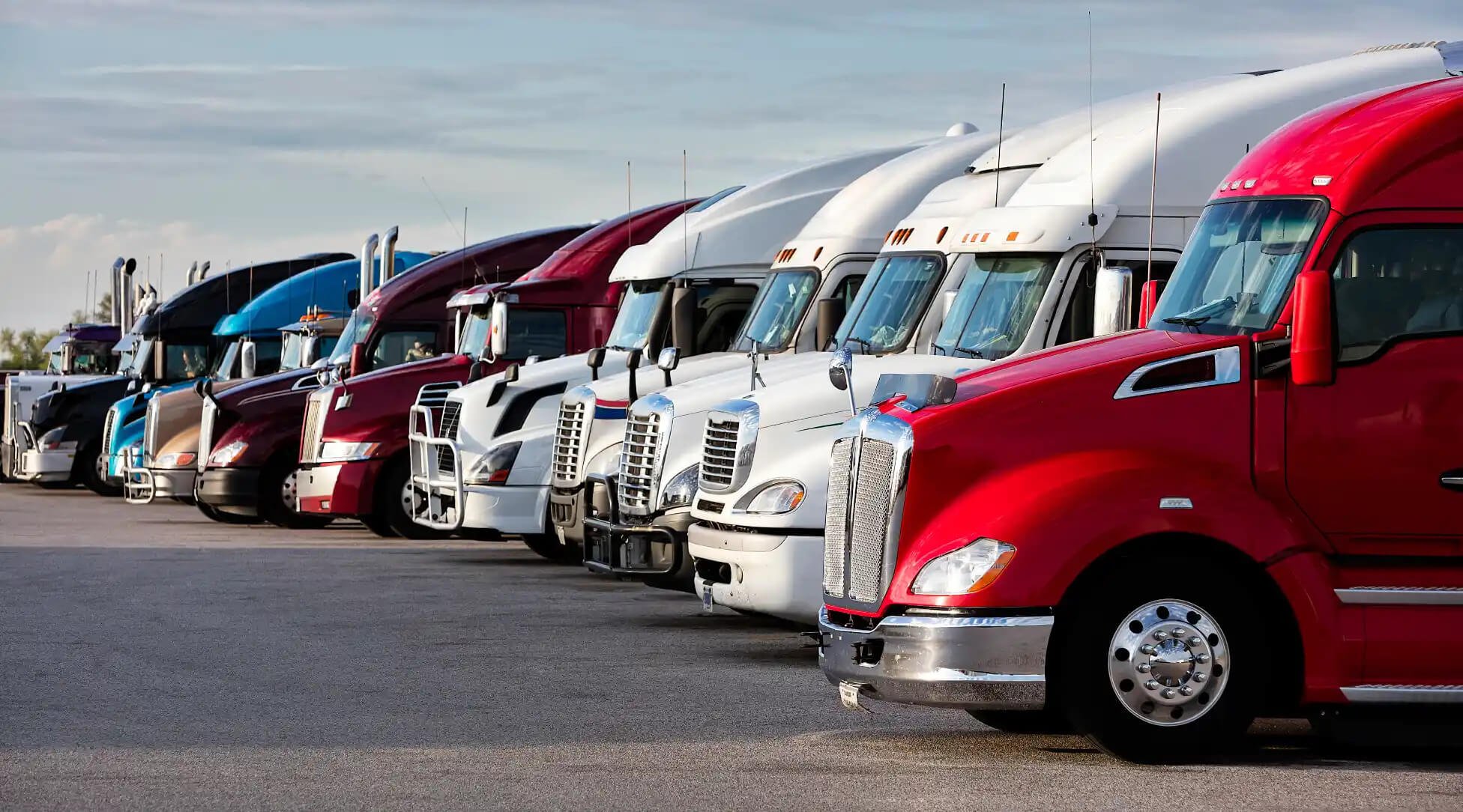How to Easily Start Your Own Trucking Business in 2024 🚛
Table of Contents
- Introduction
- Why Start Your Own Trucking Company?
- How to Start a Trucking Company in 9 Steps
- Frequently Asked Questions
Introduction
Starting your own trucking business can be an exciting venture, offering independence, potential for growth, and the opportunity to be your own boss. However, it's essential to approach it with careful planning and consideration. In this comprehensive guide, we'll walk you through the steps to easily start your own trucking business in 2024.
Why Start Your Own Trucking Company?
Starting a trucking company offers numerous advantages, including increased independence, flexibility, and income potential. As an owner-operator, you have the freedom to choose your loads, set your schedule, and grow your business according to your vision. Additionally, owner-operators typically earn significantly more than company drivers, making it an attractive option for those with driving experience and an entrepreneurial spirit.
How to Start a Trucking Company in 9 Steps
1. Get Experience
Before starting a trucking company, it's crucial to gain hands-on experience in the industry. This includes obtaining a commercial driver's license (CDL) and logging road experience. Consider attending a private truck driving school or working as a company driver to learn essential skills and gain valuable experience on the road.
Driving a commercial vehicle requires specialized skills and knowledge of safety regulations. By gaining experience as a company driver, you'll become familiar with industry practices, handling different types of cargo, and navigating various road conditions.
2. Choose a Business Entity
The next step is to choose the right business entity for your trucking company. Options include sole proprietorship, partnership, corporation, or limited liability company (LLC). Each structure offers different benefits and considerations, so it's essential to research and choose the one that best suits your needs.
Consider consulting with a legal or financial advisor to understand the implications of each business structure. Factors to consider include liability protection, tax implications, and administrative requirements. Choose a structure that aligns with your long-term goals and risk tolerance.
3. Choose a Business Name
Selecting a memorable and relevant business name is essential for establishing your brand identity and attracting customers. Consider factors such as relevance to the transportation industry, uniqueness, and ease of pronunciation. Conduct a search to ensure the name is available and not already in use by another business.
Your business name is the first impression customers will have of your company, so choose wisely. Avoid using generic or overly complex names that may be difficult for customers to remember or spell. Keep it simple, clear, and reflective of your brand values and mission.
4. Register Your Business
Registering your trucking company involves obtaining various permits and licenses required by federal and state authorities. These may include a USDOT number, operating authority, heavy vehicle use tax, and international registration plan, among others. Compliance with these regulations is essential for legal operation.
Failure to obtain the necessary permits and licenses can result in fines, penalties, and even the suspension of your operations. Take the time to research and understand the specific requirements for your business type and location. Consider working with a professional consultant or legal advisor to ensure compliance and avoid potential pitfalls.
5. Create a Business Plan
A well-structured business plan is essential for guiding the growth and development of your trucking company. It should outline your company's goals, target market, competitive analysis, marketing strategy, and financial projections. A detailed business plan will help you stay focused and navigate challenges as your business grows.
Start by defining your business objectives and identifying your target market. Conduct market research to understand industry trends, customer needs, and competitive dynamics. Use this information to develop a marketing strategy that highlights your unique value proposition and positions your business for success.
6. Secure Startup Funding
Starting a trucking company requires significant capital investment for trucks, equipment, and operational expenses. Explore funding options such as Small Business Administration (SBA) loans, equipment financing, or freight factoring to secure the necessary funds. Be sure to calculate your startup costs and plan for ongoing operational expenses.
Consider creating a detailed financial forecast that outlines your startup costs, monthly expenses, and revenue projections. This will help you determine how much funding you need and identify the best sources of financing for your business. Be prepared to present your business plan and financial projections to potential lenders or investors to secure funding.
7. Stay Compliant
Compliance with safety and government regulations is critical for the continued operation of your trucking company. Stay up to date with requirements such as driver qualifications, vehicle inspections, and tax filings to avoid penalties and maintain good standing with regulatory authorities.
Invest in ongoing training and education for yourself and your drivers to ensure compliance with safety regulations and best practices. Implement processes for record-keeping and documentation to demonstrate your commitment to safety and regulatory compliance. Consider joining industry associations and participating in industry events to stay informed about changes in regulations and best practices.
8. Establish a Fleet Management Process
Efficient fleet management is essential for maximizing the productivity and profitability of your trucking company. Implement processes for vehicle maintenance, regulatory compliance, fuel management, and driver supervision. Consider using fleet management software and fuel card programs to streamline operations and control costs.
Regular maintenance and inspection of your vehicles are essential for ensuring safety and reliability on the road. Develop a preventive maintenance schedule and track maintenance activities to avoid costly breakdowns and downtime. Invest in telematics and GPS tracking systems to monitor vehicle performance and driver behavior in real-time.
9. Build Your Business
Once your trucking company is up and running, focus on building your customer base and expanding your operations. Utilize load boards, freight brokers, and networking opportunities to find new business opportunities. Provide excellent customer service to retain existing customers and attract new ones.
Invest in marketing and advertising to increase your visibility and attract new customers. Develop relationships with shippers, brokers, and other industry partners to expand your network and access new markets. Stay agile and responsive to market changes and customer needs to position your business for long-term success.
Frequently Asked Questions
What licenses do I need to start a trucking business?
To start a trucking business, you'll need various licenses and permits, including a USDOT number, operating authority (MC number), and any state-specific permits required for intrastate operations. Additionally, you'll need a commercial driver's license (CDL) to operate commercial vehicles.
How much does it cost to start a trucking business?
The cost of starting a trucking business can vary depending on factors such as the type of operation, the number of vehicles, and geographic location. Startup costs typically include vehicle purchases or leases, insurance, permits, and operational expenses. On average, startup costs can range from $10,000 to $20,000 or more.
How do I find customers for my trucking business?
There are several ways to find customers for your trucking business, including utilizing load boards, partnering with freight brokers, networking within the industry, and marketing your services online. Building relationships with shippers, brokers, and other industry partners can help you secure consistent business opportunities.









